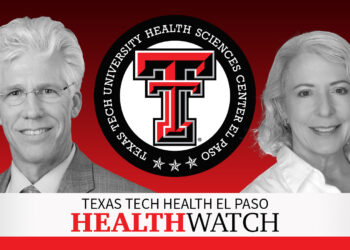As the largest financial supporter of medical research in the US, the National Institutes of Health (NIH) has helped uncover health disparities in cancer incidence, prevalence, and outcomes.
Grants funded with that federal money aimed at reducing disparities have also included initiatives that enhanced the health of all patients with cancer. An example of these in the ACCURE study — Accountability for Cancer Care Through Undoing Racism and Equity — a system-based intervention to reduce Black-White disparities in treating early stage lung cancer that’s now featured on the HDPulse site as one of the 23 interventions that improves minority health.
Not only does that intervention resolve disparities between Black and White patients but “it actually also shows markedly improved care for everyone,” said principal investigator Sam Cykert, MD, professor emeritus of The University of North Carolina at Chapel Hill (UNC).
But since January, an executive order by the Trump administration has prohibited nearly all funding related to diversity, equity, and inclusion (DEI). It’s not possible to characterize how much of that funding was specific to DEI-related research, but a total of $1.8 billion in overall NIH funding has been terminated through early April. That includes $223,566,041 in grants at the National Institute on Minority Health and Health Disparities (NIMHD), representing 8.9% of its funding from the NIH, and equivalent to 29.6% of all its grant funding. The National Cancer Institute had 0.6% of its grants cancelled, a total of $180,774,481.
In June, a federal judge struck down the directive against using NIH funding for DEI-related research, but the Trump administration is likely to appeal the decision.
Medscape Medical News reached out to the US Health and Human Services (HHS) for more information on the grants and amount of money cancelled and whether the department leadership has concerns about the impact of cancelled funding on cancer outcomes for marginalized populations.
An HHS spokesperson told Medscape Medical News through email that the department “remains committed to advancing cancer research and other serious health conditions” but does not see DEI-related research as part of that commitment.
“Unfortunately, this work was previously funded under an inappropriate and ideologically-driven — rather than scientifically driven — DEI program under the Biden Administration,” the spokesperson wrote. “In the future, these types of programs will be reviewed based on their scientific merit rather than on DEI criteria.”
Experts, however, emphasized the importance of ongoing research in this area. So how can they continue this work that they say is integral to improving healthcare for all?
Alternative Sources of Funding
Clinicians acknowledged significant barriers to conducting DEI-related medical research, but they also provided a glimmer of hope. In interviews with Medscape Medical News, they gave suggestions for how to find funding in these uncertain times.
Cykert, who is also program director emeritus of UNC’s Program on Health and Clinical Informatics, spent more than 30 years studying health disparities in cancer. He pointed out that the American Cancer Society has always been a strong funder in this area.
“Health equity across the cancer continuum” is one of their research priority areas, and they can often be competitive with what the National Cancer Institute pays. But he acknowledged that private foundations cannot close the gap left by NIH funds no longer available.
“We’re going to have to start looking at alternate funding sources, at foundations like the American Cancer Society, the Robert Wood Johnson Foundation, Susan G. Komen, and private donors that increasingly are giving funds for cancer research,” said Yolanda VanRiel, PhD, RN, the department chair of Nursing at North Carolina Central University and a part-time patient placement coordinator at First Health of the Carolinas-Moore Regional Hospital.
“There are philanthropic arms of health systems that people don’t think about,” she said. “Industry partners, especially those that are focused on community engagement and patient-centered outcomes, are also viable.”
She also mentioned PCORI (the Patient-Centered Outcomes Research Institute), and the Oncology Nursing Foundation. In addition, the Michelson Medical Research Foundation gives awards that focus specifically on immunology, vaccines, and immunotherapy.
“You can [also] collaborate with community-based organizations, and that can also open doors to funding that’s tied to local or regional health equity initiatives as well,” VanRiel said.
These options have always been there, but people have generally tried for NIH’s big pot, she said.
“I think a lot of the time, when you’re in specialty areas, you know about these, but it’s time to make everybody realize that you can come back to the American Cancer Society,” she continued. “When a lot of people think of Susan G. Komen, they think about the walk or other things, but they give out grants too.”
Don Dizon, MD, a professor of medicine at Brown University’s Warren Alpert Medical School, director of the Pelvic Malignancies Program at Lifespan Cancer Institute, and head of Community Outreach and Engagement at Legorreta Cancer Center, Providence, Rhode Island, said he has several colleagues whose funding has been pulled.
Dizon, whose research includes health disparities among LGBTQ populations and advocacy on behalf of sexual and gender minoritized communities, called for “more leadership from the institutional side” and for industry to step up.
“I think this is where industry can flex its muscle and say, ‘We truly believe that addressing disparities when it comes to clinical trials is an important endeavor to ensure community health,’” he said.
Advice for Wording Grant Applications
VanRiel, Dizon, and Cykert also offered their thoughts on how to word federal grant applications to increase the likelihood of getting approval within the expectations of updated federal guidelines.
“I would emphasize that I’m going to make care better and cheaper for everyone,” Cykert said. “Then we’ll do a subgroup analysis to see if we’re missing anybody.”
“We have proven that when you do system-wide interventions that reduce disparities, you actually improve care for everybody because the care for White patients isn’t perfect in this medical system either,” he noted.
Dizon calls for researchers to focus on the existing data in disparities research.
“The way forward is not to focus on the idea of advancing diversity, advancing equity, advancing inclusiveness [in grant applications] but to put forward a rationale to identify and address the disparities that exist in healthcare,” he said.
He also suggested researchers look closely at the language in federal requests for proposals, as well.
“Be very careful to mirror the language that they’re using because I do think they still want to do work in improving health outcomes for populations,” Dizon said.
VanRiel recommended writing grants focused on the social determinants of cancer outcomes or geographic disparities, such as individuals in the South who face access barriers.
“Our responsibility as researchers is to produce knowledge that improves care for all patients,” she said.
There still may be funding from the NIMHD, but the future of that institute remains unclear since the proposed 2026 budget for HHS noted that the NIMHD will be eliminated.
Do you have ideas on how to continue doing work to improve research and, ultimately, care for underserved communities? Share those ideas at [email protected].
Tara Haelle is a science/health journalist based in Dallas.
Source link : https://www.medscape.com/viewarticle/experts-advise-how-study-dei-cancer-2025a1000kyg?src=rss
Author :
Publish date : 2025-08-07 13:55:00
Copyright for syndicated content belongs to the linked Source.














